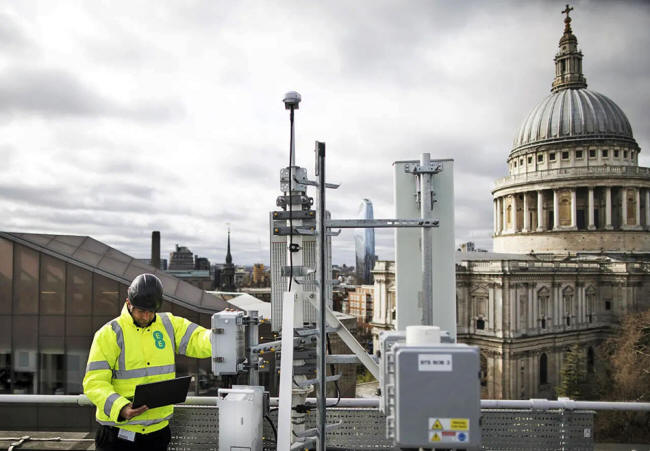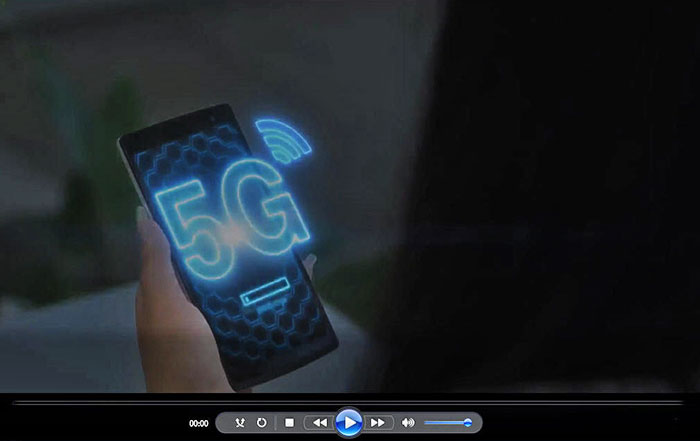|
by Sue Halpern during 5G equipment trials in London, in March. Cybersecurity experts have accused Huawei of being a conduit to Chinese intelligence. Photograph by Simon Dawson Bloomberg / Getty
The future of wireless technology holds the promise of total connectivity. But it will also be especially susceptible to cyberattacks and surveillance...!
At the time, Spalding, a brigadier general in the Air Force who previously served as a defense attaché in Beijing, had been in the military for nearly three decades.
At the N.S.C., he was studying ways to insure that the next generation of Internet connectivity, what is commonly referred to as 5G, can be made secure from cyberattacks.
To Spalding's surprise, the Axios story was based
on a leaked early draft of a report he'd been working on for the
better part of a year.
5G - if you believe the hype - is expected to be up to a hundred times faster. (A two-hour movie could be downloaded in less than four seconds.)
That speed will reduce, and possibly eliminate, the delay - the latency - between instructing a computer to perform a command and its execution.
This, again, if you believe the hype, will lead to a whole new Internet of Things, where everything from toasters to dog collars to dialysis pumps to running shoes will be connected.
Remote robotic surgery will be routine, the military will develop hypersonic weapons, and autonomous vehicles will cruise safely along smart highways.
The claims are extravagant, and the stakes are high.
One estimate projects that 5G will pump twelve trillion dollars into the global economy by 2035, and add twenty-two million new jobs in the United States alone.
This 5G world, we are told, will usher in a fourth industrial revolution.
A totally connected world will also be especially susceptible to cyberattacks.
Even before the introduction of 5G networks, hackers have breached the control center of a municipal dam system, stopped an Internet-connected car as it travelled down an interstate, and sabotaged home appliances.
Ransomware
...have become so common that more Americans are afraid of cybercrime than they are of becoming a victim of violent crime.
Adding more devices to the online universe is destined to create more opportunities for disruption.
For Video, CLICK above image...
|



